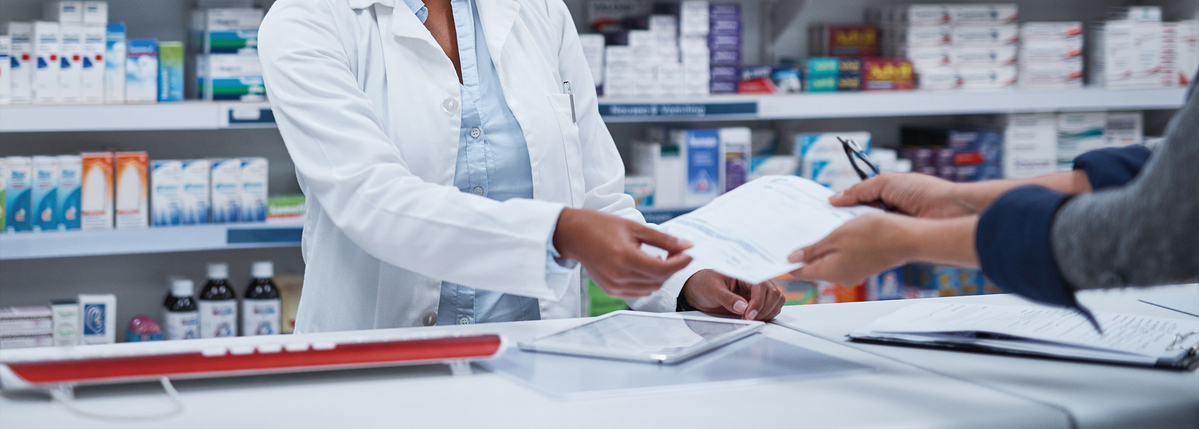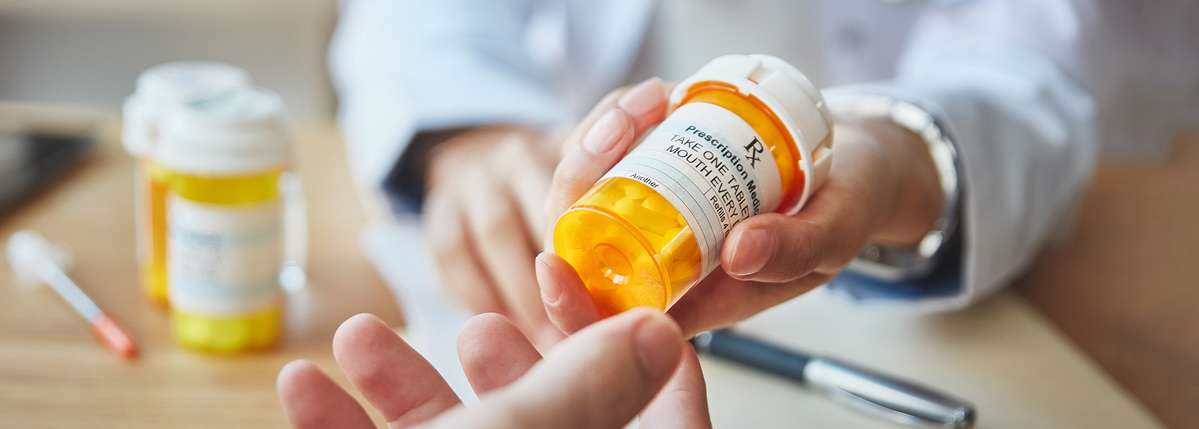What to Expect at Your First Appointment with a Diabetes Care and Education Specialist
Written by: Mariana Gómez
5 minute read
May 30, 2019
Meeting with a diabetes educator can be a game-changer. Know what to expect in your first meeting with a diabetes educator.
This content was created in partnership with the Association of Diabetes Care and Education Specialists.
Type 2 diabetes management often requires the help of a multidisciplinary team. This team is made up of different key figures for your health’s management and of course, it includes you as the team leader. Among the key members of this team is a diabetes care and education specialist (DCES).
A diabetes educator provides tools to develop skills for our self-management. They help people with diabetes learn the best ways to take care of themselves and manage the day-to-day challenges of living with diabetes. They have expertise in type 2 diabetes prevention and diabetes management. Many also hold the diabetes care and education specialist credential.
When you book your first appointment with a DCES. they’ll go over a variety of topics with you, including nutrition, exercise and medication usage. They’ll also help you set achievable goals and milestones to keep motivation high. Read on to know what to expect from your first meeting with a DCES and how to prepare.
What can you expect from your first appointment with a diabetes educator?
In your first session, your diabetes educator will ask for information to identify areas where you need the most help as well as your priorities that will help you reach not only your glycemic goals but your overall health goals, too.
Diabetes management and diabetes education are based on AADE7’s Self-Care Behaviors® these behaviors are the basis of much of the work you’ll do with your diabetes educator.
Healthy Eating: A personalized plan is one that meets your dietary goals and your favorite foods and treats is an effective plan. Expect your diabetes educator to help you plan a diet to manage your blood glucose and enjoy your meal times at the same time. This isn’t the time to get shy, either. Tell your educator what foods you love, which ones you’d like to try and which ones you can scale back. This is your diet plan.
Being active: We’ve emphasized that exercise is also an important piece in keeping blood sugar under control. Choosing an activity you love is key here, and if you’re unsure about which types of exercises you may enjoy, your DCES will recommend some. They’ll also help you identify the best times for workouts and will explain the expected effects of exercise on blood sugar and any other precautions to take.
Monitoring: Keeping a daily record of your blood sugar numbers, the amount of times we take medication and their dosages, as well as any dietary tracking gives you and your DCES the chance to create the best plan for you. You’ll be able to identify patterns, trends and even discover the impact they have on your blood glucose levels. Don’t worry about being presenting “bad” numbers or foods, the goal is to get the whole picture of your current regimen to work towards a larger goal.
Taking Medication: Want to know how different diabetes meds such as oral meds and insulin work? This is the time to ask your DCES and ask for a consultation on which ones may be best for you.
Problem-solving: Finally we are people. People with diabetes face challenges we all deal with, including the complex issues diabetes brings. If you’re having trouble dealing with the emotional, mental, physical and financial aspects of diabetes care, talk to your DCES. They can help you point to the right resources to alleviate your situation.
Reducing risks: You’ll learn about the complications of diabetes, prevention methods, or if you’re already living with them, how to manage them. You’ll recognize ways to identify the symptoms of diabetes-related health issues as well.
Healthy Coping: You know what they say: it’s all about the attitude! We know that we read complex things about type 2 diabetes and it’s hard to see the positive side of living with it, but maintaining a positive attitude can go a long way into better care and see better results. Talk to your DCES about healthy coping mechanisms, especially for the times when you feel distressed or burnt out.
How should I prepare for this appointment?
Bring your logbook: Whether you keep a written record of your blood glucose levels or use an application, bring the results or the most relevant information to your appointment. It’ll help your diabetes educator help you identify areas of opportunity to achieve your goals.
Do a 24-hour recall: Take with you a record of the food you’ve eaten within the last 24 hours. With this, you and your DCES will be able to identify what foods work for you and begin developing your meal plan.
Medications: Bring a list of medications you use as well as the hours and doses in which you take them.
Labs: Bring your test results with you such as your A1c, blood pressure, cholesterol and any other labs you think will be useful for your DCES. Also, contact them for a specific list of lab work to bring.
Doubts: Write down questions you have about the management of your diabetes. Remember that there are no silly questions. Your educator will help you find answers and guide you to reliable sources in case you need more information on a topic.
Use these basics to ensure your first appointment with a diabetes educator goes as smoothly as possible. Ask your doctor for a referral to a DCES if you need more help with your diabetes care. If you live in the United States, the Association of Diabetes Care and Education Specialists has resources and even a directory to help you find one. If you read us from another region, go to your local doctor or association, they can tell you where to find an expert in your area.

Author
Mariana Gómez
Mariana is a diabetes educator and a licensed psychologist specialized in narrative. In 2008, Mariana started a blog where she shares her experiences and diabetes knowledge with others and she began being an active advocate through social media. She is considered a diabetes influencer in Latin America and has participated in several conferences, events and TV shows dedicated to diabetes education in the last years. She is a proud mother of a teenager.
Related Resources

You may need to switch your type 2 medications at some point in the year....
Read more

Getting the medications, services and supplies you need to manage your type 2 diabetes should...
Read more

Sadly, not all type 2 diabetes medications, devices and services are covered by health insurance...
Read more

